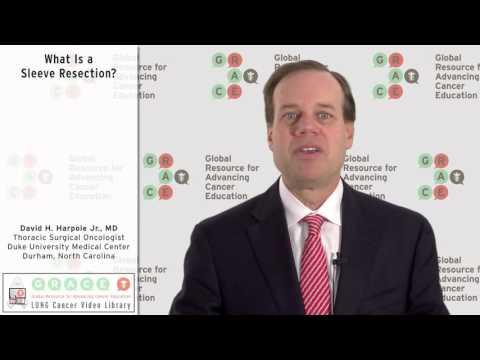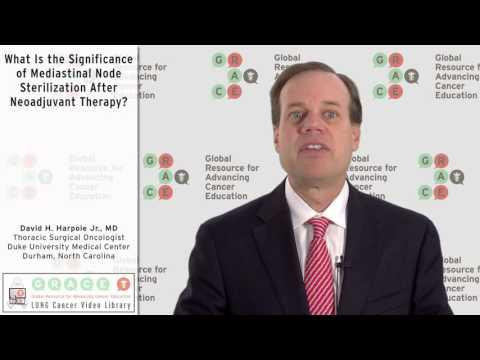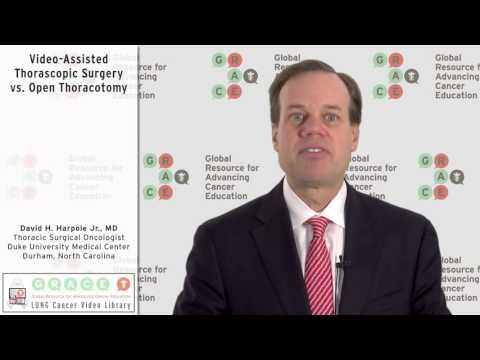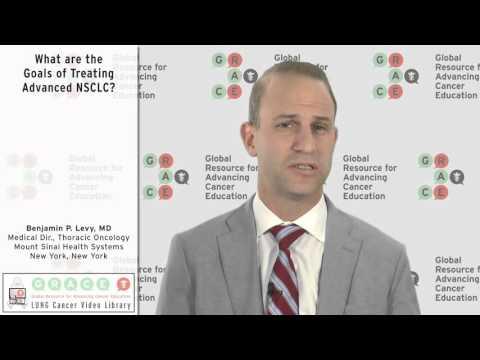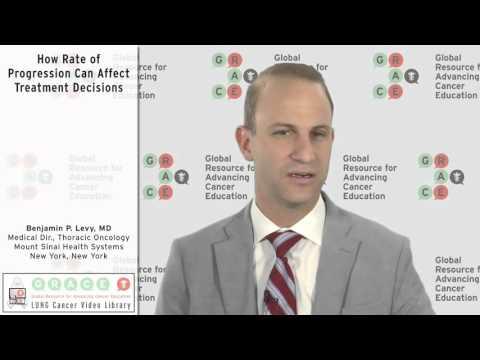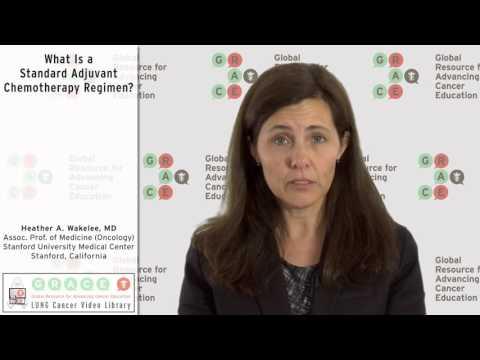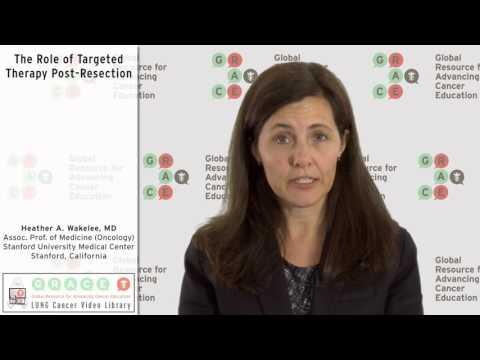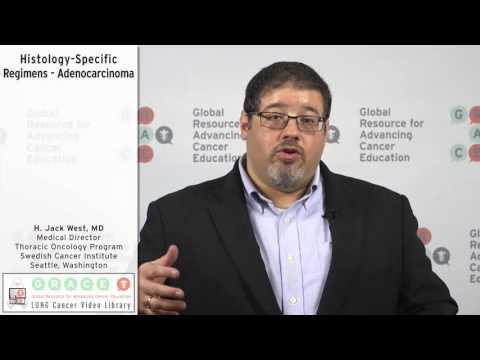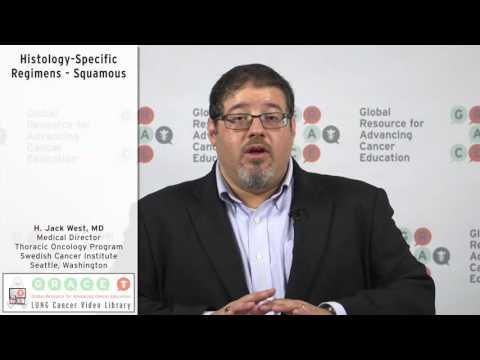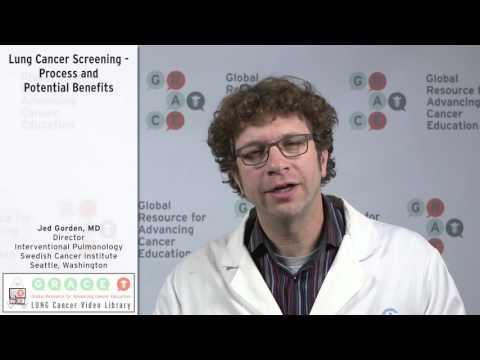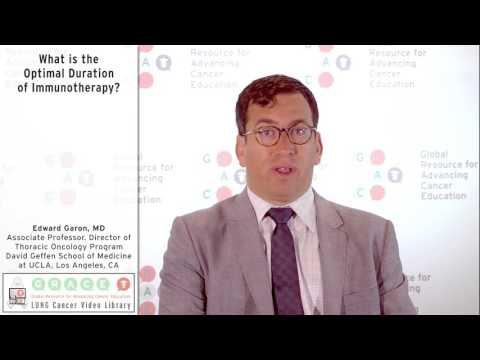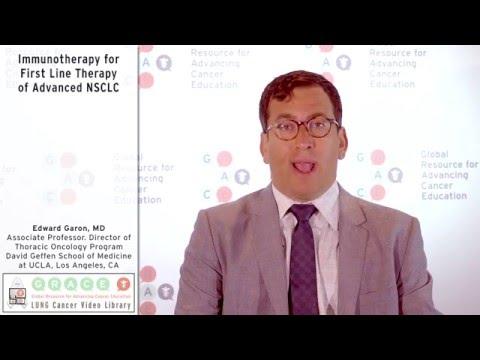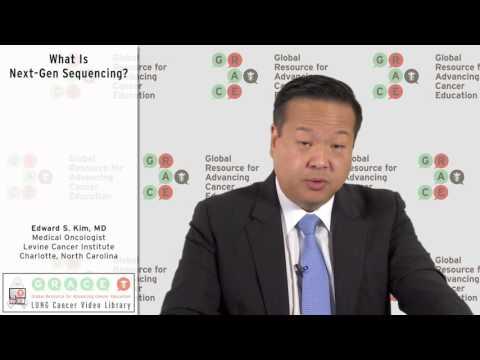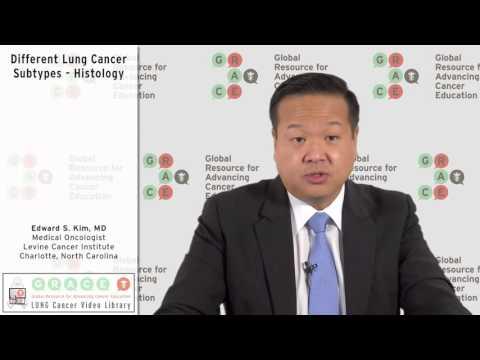Dr. David Harpole, Duke University Medical Center, describes how he assists patients with the surgical decision-making process.
Video Library
Search the Video Library
Video Language
Filter by Cancer Type:
Displaying Results 31 - 45 of 178
Dr. David Harpole, Duke University Medical Center, describes the sleeve resection and how it can help selected patients with large tumors retain lung function.
Dr. David Harpole, Duke University Medical Center, defines the concept of mediastinal node sterilization and its use after neoadjuvant therapy.
Transcript Historically, lung cancer has been treated with a large incision between the ribs, and in the early-mid ‘90s we began to investigate uses of the laparoscope, which was used to do gallbladders and so forth, in the chest. So we began using the devices to do more limited resections with this
Transcript I think there are several goals when treating a patient with advanced non-small cell lung cancer. For one I think we want to extend life, two is I think we want to palliate symptoms, and three is I think we want to improve quality of life. So all three of those goals are achievable, I
Transcript I think we know a lot now about how to treat patients with advanced stage lung cancer, and there are several things that we factor in when we treat patients. One is clearly the genetic makeup of their tumor — we tend to look at this when we’re trying to decide on a targeted drug for these
Dr. Heather Wakelee, Stanford University Medical Center, lists standard adjuvant chemotherapy regimens, comparing their administration and uses.
Dr. Heather Wakelee, Stanford University Medical Center, evaluates the lack of evidence for the use of targeted therapies after surgery, and describes ongoing trials attempting to resolve that issue.
Dr. Jack West, Swedish Cancer Institute, addresses the issue of choosing a first-line chemotherapy regimen based on an adenocarcinoma histology.
Dr. Jack West, Swedish Cancer Institute, reviews the choices for a first-line chemotherapy regimen based on a squamous histology.
Dr. Jed Gorden, Swedish Cancer Institute, reviews the lung cancer screening process, including low-dose CT scanning, smoking cessation, follow-up testing and counseling, and describes the potential benefits.
UCLA Med Center's Dr. Eddie Garon discusses the open question of the optimal duration of ongoing treatment with immunotherapy for lung cancer.
Dr. Eddie Garon considers the data on immunotherapies for first line treatment of advanced NSCLC and whether we are likely to use these agents instead of or in combination with standard chemotherapy soon.
Dr. Ed Kim from the Levine Cancer Institute in Charlotte, NC summarizes the mechanism of next generation sequencing (NGS), how it can potentially be used, and its limitations in clinical practice today.
Dr. Edward S. Kim from the Levine Cancer Institute in Charlotte, NC defines the concept of cancer histology and gives examples of several lung cancer subtypes.


